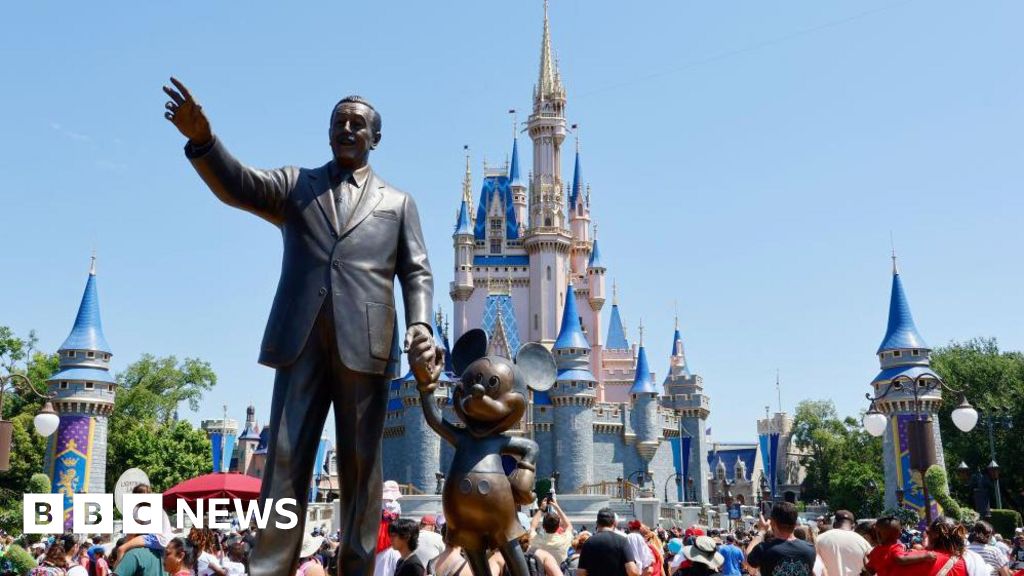Immigrants in the United States, both legal and illegal, are on edge. The new Trump administration's hardline immigration policy has sent shockwaves through communities.
Kabir, whose name we have changed on his request, is an engineer from India working at a Silicon Valley startup. He says losing his job would be a nightmare for him because he is currently in the US on a so-called H-1B visa for which he needs an employer sponsor who must file a petition with US Citizenship and Immigration Services (USCIS). He cannot stay without employment, he told DW, which is why he's concerned about what new policies might be put in place.
Indian tech workers in the US fear Trump's visa reform
"We invest in this country, contribute to it, yet securing a work visa remains a struggle. From day one, we get just 90 days of unemployment, you need to find a new job or leave. That pressure is always there," said Kabir.
A so-called Green Card would give him permanent residency and allow him to work and live in US indefinitely But with a million applicants ahead of him, his official estimated wait time for a Green Card is 108 years, he added.
H-1B workers in limbo
Like many other H-1B visa holders, Kabir's future in the US feels uncertain. Created in 1990, the H-1B visa program for skilled foreign workers was designed to fill gaps in the labor market. The initial duration of a temporary visa is usually three years, which can then be extended for an additional three years.
But according to experts, it's failing to work as intended. The program is being misused by employers to "substitute, compete against, undercut and undermine" native employees on the US labor market, says Ron Hira, an associate professor at Howard University in Washington D.C., who studies labor issues.
 Highly skilled tech workers from India are often exploited due to H-1B visa rulesImage: DW
Highly skilled tech workers from India are often exploited due to H-1B visa rulesImage: DWBecause these H-1B workers are temporary and tied to their employers, they do not have the same rights as US workers. They are less likely to say "no" to their bosses because "losing their job means losing their visa," Hira told DW. The employer controls their legal status, which makes them highly vulnerable.
Green Card vs. H-1B visa: Silicon Valley's 'dark secret'
Vivek Wadhwa, CEO of Vionix Biosciences — a Silicon Valley life sciences company — calls this an "industry loophole" and Silicon Valley's "dark secret."
The California technology hub is especially powered by foreign skilled workers, yet tech giants prefer H-1B visa holders over Green Card applicants.
"If you run a big technology company, you'd rather have stable employees who can't easily leave and who earn lower salaries. It's an economic decision," said Wadhwa.
Ironically, many of Silicon Valley's biggest players are immigrants themselves. Google's Sundar Pichai and Microsoft's Satya Nadella, for example, are of Indian descent. Jensen Huang, who built Nvidia, is from Taiwan. The founder and CEO of videoconferencing company Zoom Eric Yuan is from China. And, of course, South African billionaire Elon Musk, the man behind SpaceX and Tesla.
Silicon Valley's lobby
As Big Tech is among the biggest beneficiaries of the H-1B visa program, some argue that this is why Silicon Valley's most powerful executives have grown close to Trump backing his second presidential campaign financially.
Tech industry leaders will "definitely influence Trump´s policy decisions on H-1B," says the CEO of the Silicon Valley Central Chamber of Commerce, Harbir Kaur Bhatia.
 US tech bosses supported the Trump campaign and secured front-row seats at his inaugurationImage: Saul Loeb/REUTERS
US tech bosses supported the Trump campaign and secured front-row seats at his inaugurationImage: Saul Loeb/REUTERSUnlike during his first presidency, when Trump was advocating for "Buy American, Hire American" and against H-1B visas, he has now softened his position and expressed support for skilled immigration, Bhatia told DW.
Indian tech migration may take a hit
The likely shift in visa policy is particularly important for Indian professionals. They make up more than 70% of all H-1B visa holders but are also grappling with its most pressing flaws.
Also, Indian nationals are often the target of hatred and attacks for allegedly taking jobs away from Americans and undercutting wages.
Ron Hira says India has a strong interest in preserving the H-1B program not only because workers send large remittances home, but also because Indian IT services companies rely heavily on H-1B visas to run their outsourcing business.
How will Trump tariffs, deportations affect India-US ties?
"It's a big cash cow for the country," Hira added which is why Indian companies are opposed to a reform that would reduce their profits.
Tired of the system and its uncertainty, many skilled immigrants are nevertheless choosing to return to India and build their own companies. Vivek Wadhwa predicts that within the next five to 10 years, India will have multiple Silicon Valleys. He even has already relocated his own company there.
If the Trump administration makes the situation worse for skilled foreign workers, says Wadhwa, "this immigration debate is going to blow up in America's face," and many of them will take their talent and innovation elsewhere.
Edited by: Uwe Hessler

 3 days ago
6
3 days ago
6









